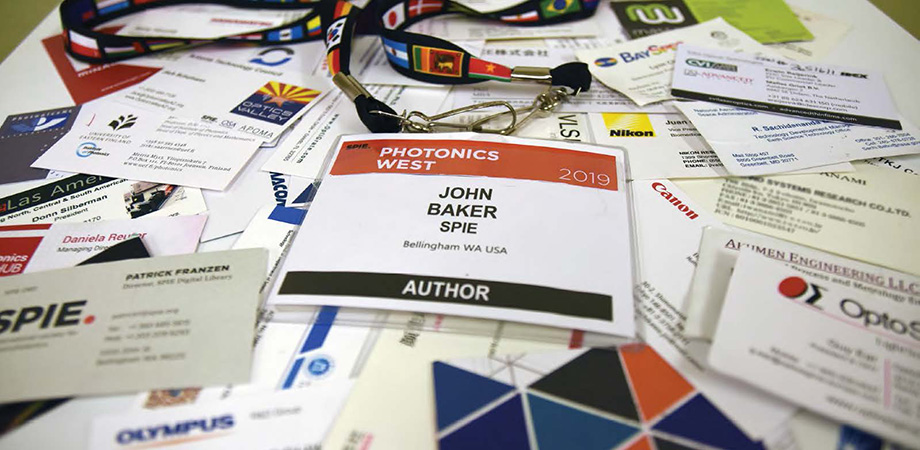So, You Attended a Conference. Now what?
Here are a few ways to get more mileage out of your conference experience.

You got approved to present a paper at a conference. You worked hard to prepare your slides or poster and booked your travel. You showed up, presented, met lots of people, fielded some good questions about your research project, heard some interesting talks. Then you returned to school or your job, and...mostly forgot about the conference.
Here are a few ways to get more mileage out of your conference experience:
1. Follow up.
You probably came home with a dozen or more business cards, and maybe a few pictures of conference badges. Before you toss them in a desk drawer or archive the photos, follow up with the person you met by connecting on social media or sending an email. Did you see an interesting talk? Send them a LinkedIn request with a note about how much you enjoyed it.
Matthew Posner, optoelectronics process engineer at Excelitas Technologies, often follows up with his new acquaintances by asking a simple question that he thinks they'll enjoy answering. "Or, depending on our initial conversation, I might give them an update on my future projects, like changing jobs or searching for new opportunities," he says.
| "After swapping business cards, write what you were talking to them about on the back, so you can remember the person. Then, when you follow up a few weeks later, remind the person what you talked about." -Laura Tobin, SPIE Member |
2. Write up your experiences.
Once you return to the daily grind, it can be easy to forget what you learned and heard. When you get back from a conference, take 30 minutes to write up a few notes about your major takeaways. Don't wait more than a week—the details are going to get fuzzy. Share your experiences on a blog, on social media, or in a company or lab newsletter. These notes will come in handy if you're asked to...
3. Give a presentation to your supervisor, lab group, or student chapter.
Even if you're not required to report back to anyone following a conference, consider volunteering to do it anyway. Reporting back on what you learned and experienced demonstrates that you were actively engaged in the technical content—and not just there for the drink tickets. It also gives you the opportunity to share the knowledge you gained with your colleagues, which extends the benefit of your experience to others. Institutions want to know that the expense of sending people to conferences is money well spent, and they won't know unless you tell them.
4. Fix your presentation.
You might be glad that it's over, but don't put that conference presentation behind you just yet. Did you stumble over part of the presentation? Did someone ask you a question you couldn't really answer during Q&A? Talk to a supervisor or colleague, and then make notes about what would have made it better. This exact presentation may be over and done, but you'll likely present at another conference someday, and a postmortem of your presentation can help you do better next time.
5. Download the papers.
Your SPIE conference registration came with access to all of the papers published in a proceedings volume of your choice. Those papers are often closely related to your research area, so take a look at the online table of contents and download relevant papers (and show courtesy to your fellow attendees by submitting your own proceedings paper—someone might be looking for it). 80% of authors give SPIE permission to publish presentation recordings, so you'll also be able to watch presentations you might have missed.

| Enjoy this article? Get similar news in your inbox |
|



